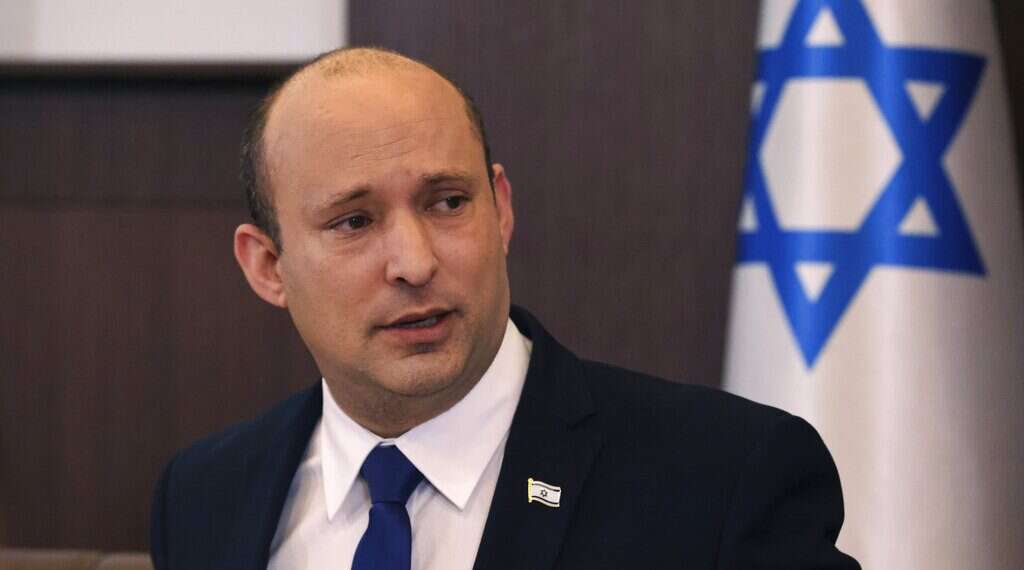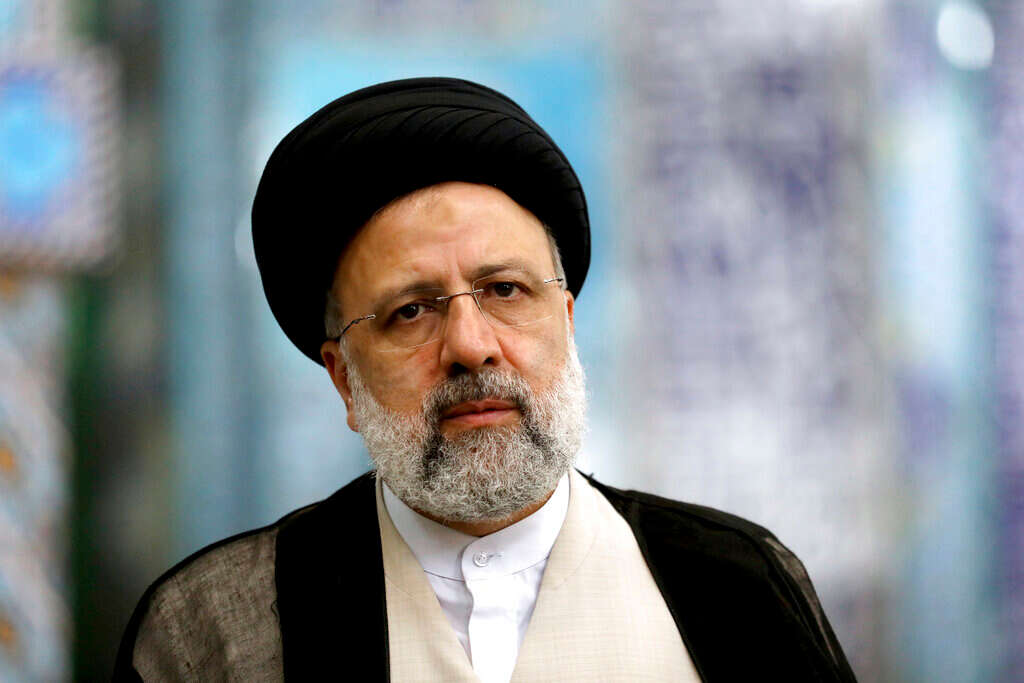by Lilach Shoval , Ariel Kahana and News Agencies
Prime Minister Naftali Bennett says the election of Iranian President-elect Ebrahim Raisi is "the last chance for the world powers to wake up."
 |
| PM Naftali Bennett chairs the first weekly cabinet meeting of the new government in Jerusalem, Sunday, June 20, 2021 | Photo: Emmanuel Dunand/Pool Photo via AP |
The Iranian presidential election victory of Ebrahim Raisi, which Prime Minister Naftali Bennett on Sunday morning called "a wake-up call to world powers" – took no one in Jerusalem by surprise. For several months now, the defense establishment has been preparing for the possibility of an attack in Iran in case of a breakthrough in its nuclear weapon project.
Such a strike would be a complex military undertaking, requiring capabilities, training and special munitions, but defense officials do believe a future operation of this nature is a distinct possibility. With that, it's no secret that such an attack in Iran would be exceedingly complicated due to the broad dispersal of its military installations throughout the country, and Israel would prefer to carry out other actions to curb Tehran's nuclear program.
Meanwhile, there are those in Israel who believe Raisi's election isn't necessarily bad for Israel. According to some within the defense establishment, Raisi – the 60-year-old ultra-conservative who has the ear of Ayatollah Ali Khamenei, and who is described by Israeli officials as an "extremist" – might very well institute extremely conservative positions that could exacerbate efforts to renew the nuclear deal with the United States.

Bennett, convening his first televised cabinet session since taking office last week, described Raisi's ascent as enabled by Iranian supreme leader Ayatollah Ali Khamenei rather than by a free and popular vote.
"Raisi's election is, I would say, the last chance for world powers to wake up before returning to the nuclear agreement, and understand who they are doing business with," said Bennett in a statement he read out first in Hebrew and then in English.
Bennett said Raisi's election as Iranian president was "the last chance for the world powers to wake up before returning to the nuclear agreement and to understand who they're doing business with.
"These guys are murderers, mass murderers: a regime of brutal hangmen must never be allowed to have weapons of mass destruction that will enable it to not kill thousands, but millions," he said. "Israel's position will not change on this."
Under Bennett, meanwhile, Israel has adopted a new policy relating to the talks between the US and Iran. The previous prime minister, Benjamin Netanyahu, prohibited senior Israeli officials from discussing the details of the emerging nuclear deal with the Americans, but Bennett has rescinded that constraint.
The hope in Israel is that Raisi's presumed obstinacy visa-vi nuclear negotiations, combined with his extremist behavior and rhetoric, will irritate the Biden administration to the point of not only abandoning a deal with him, but perhaps even deploying aircraft carriers to the Persian Gulf. In such a scenario, any finalization of the nuclear deal would likely be postponed for several months, during which Israel can endeavor to amend some of its details.
Other senior Israeli defense officials believe otherwise and that the ultra-conservative Raisi will seek a significant achievement early in his presidency by signing a deal with the US to secure the removal of stifling economic sanctions. Even according to this assessment, a nuclear deal wouldn't be signed before September, as Raisi is only expected to enter office in early August.
Either way, Israeli officials are very apprehensive about the upcoming months, which they view as a period of "treading water." On the one hand, the International Atomic Energy Agency will be reducing the scope of its monitoring activities over that span; meanwhile, the Iranians are not obligated to a deal and continue enriching uranium and progressing their nuclear project as they deem fit; and thirdly, neither a viable military threat nor significant sanctions are on the table amid the backdrop of the current negotiations in Vienna.
IDF Chief of Staff Lt. Gen. Aviv Kochavi embarked on a work trip to the US, during which he will meet the Chairman of the Joint Chiefs of Staff Gen. Mark Milley, National Security Adviser Jake Sullivan, and Defense Secretary Lloyd Austin. One of the central topics of discussion will be the nuclear deal with Iran which, up until recently, as stated, Israel has felt very little ability to influence.
Kochavi is also expected to discuss Iran's ongoing efforts to establish footholds across the Middle East, along with other regional issues including Hezbollah's armament and the threat of precision missiles. The IDF chief will also discuss the army's recent military campaign in Gaza, Operation Guardian of the Walls, with his American hosts, and the Israeli request to replenish its stocks of interceptor missiles and other munitions.
Lilach Shoval , Ariel Kahana and News Agencies
Source: https://www.israelhayom.com/2021/06/20/irans-new-president-is-an-extremist-but-is-that-necessarily-bad-for-israel/
No comments:
Post a Comment